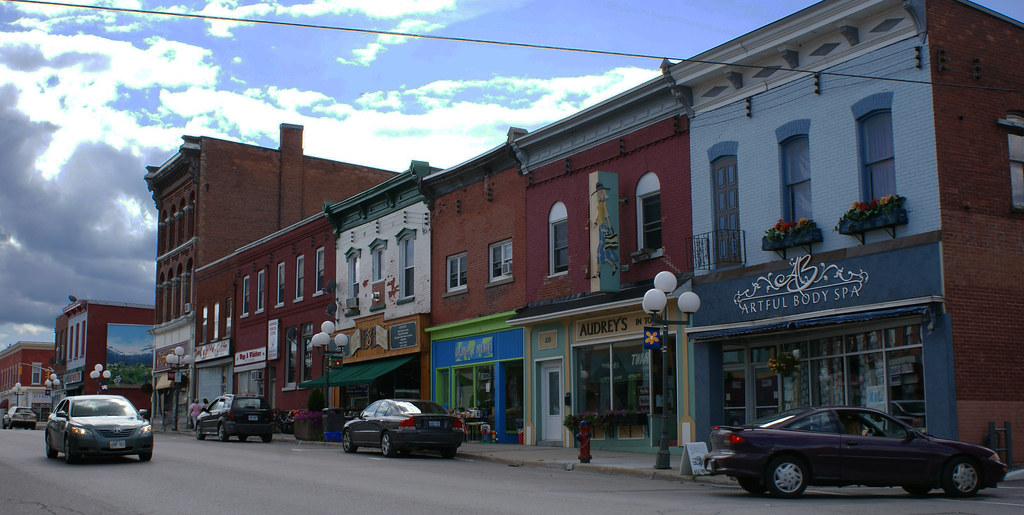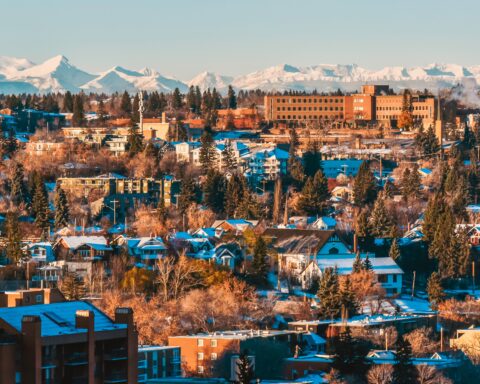Settlement services for new immigrants, especially in small towns and rural communities, need to be boosted to ensure the successful integration of newcomers, according to the Conference Board of Canada.
Yet, over the last five or six years, “settlement service funding has not kept up with the growth in the immigration levels plan,” states the independent think tank, which focuses on economic and public policy issues.
This has been true “especially during the pandemic,” explains Iain Reeve, the Board’s associate director of immigration research.
“Settlement funding must follow the ambition of the levels plan,” he told New Canadian Media in an interview.
His comments follow last week’s announcement that Canada aims to attract about 1.3 million new immigrants over the next three years to help fill critical labour shortages and fuel post-pandemic growth.
According to Reeve, who recently penned an op-ed on the issue for the Globe and Mail, given that more communities across Canada are becoming pro-active in trying to welcome and retain immigrants, governments and the immigration sector must pivot toward ensuring their successful settlement and integration.
That’s why “attracting immigrants is only half of the process,” especially during the pandemic, he says, “because not every immigrant is best served by choosing to live in a major city,”
“We need more targeted and specialized services especially in rural communities to attract new immigrants and ensure they have access to essential services especially during their first year in Canada,” he said. Without this, “our record influx of newcomers won’t achieve their full potential.”
Additionally, he says, “settling in a greater diversity of locations also flattens the infrastructure costs of a growing population, while the benefits of immigration are shared.”
Luring newcomers
Canada’s new immigration plan will set a record for annual new arrivals starting with 431,645 in 2022 and rising to 451,000 by 2024.
Driven mostly by immigration, Canada’s population rose to 37 million people in 2021, up 5.2 per cent from 2016, according to a Statistics Canada report, with almost 90 per cent of new immigrants settling in urban centes.
In an attempt to lure more newcomers to smaller communities, Immigration, Refugees and Citizenship Canada (IRCC) recently announced an investment of more than $35 million to expand settlement services.
This investment includes $21 million to add nine new Resettlement Assistance Program service providers in British Columbia, Alberta, Manitoba and New Brunswick. In addition, 14 existing settlement service providers will get one million dollars each to expand programs to assist more vulnerable newcomers.
This investments will be key to enhancing access to support services in smaller and rural communities, said Minister of Immigration Sean Fraser.
The Conference Board of Canada has welcomed recent initiatives by the provinces of Manitoba and Alberta to attract more new immigrants to its smaller communities.
Alberta has announced two new immigration streams to help rural communities grow by attracting skilled newcomers. The new rural immigration streams are part of the federal-provincial Alberta Advantage Immigration Program, which nominates individuals for permanent residence in that province if they have skills to fill job shortages or are planning to buy or start a business there.
“One of the biggest challenges facing rural communities is population decline, which has caused a succession crisis when a retiring business owner cannot find an interested buyer,” said Alberta Premier Jason Kenney.
Likewise, Manitoba’s government has also announced a new advisory council on immigration to serve as an expert panel to recommend improvements to current immigration policies and programs.
“This new advisory council will help us look at new and innovative ways to continue to be a welcoming new home for all newcomers, including refugees and international students, a dynamic destination for immigration and business investors, and an attractive place for people to come to build a life of opportunity and prosperity for themselves and their family,” said Manitoba Premier Heather Stefanson earlier this month.
The advisory council plans to build on the success of Manitoba’s Provincial Nominee Program, which nominated 6,275 applications in 2021, the highest number of nominees since the program was established in 1998.
‘They prefer urban centres’
However, only 21 per cent of nominees chose to settle outside the Winnipeg capital region.
British Columbia, which recorded the second-highest percentage of population growth since 2016, has four of the top five fastest-growing metropolitan areas in Canada.
Research by Carlos Teixeira, a professor with the department of geography at University of British Columbia – Okanagan Campus, found that “immigrants, in general, don’t go to rural areas.”
“They prefer urban centres where there are already established ethnic communities. The existence of those communities eases integration into Canadian society,” Teixeira’s study concluded.
The province has two regions participating in the Rural and Northern Immigration Pilot, which is designed to spread the benefits of economic immigration to smaller communities.
A multiple-award winning journalist, Fabian Dawson is an internationally acclaimed author, filmmaker and media expert. His work over the last four decades spans the globe and he also serves as a consultant/strategic advisor to a variety of international companies. As deputy editor-in-chief of The Province, part of the Postmedia chain, Dawson led initiatives within a special publications group to provide directed content for a variety of organisations. He was named the 2019 recipient of the Bruce Hutchison Lifetime Achievement Award at Jack Webster Awards. Dawson has been invited by the governments of India, Malaysia, Taiwan, China, Hong Kong and the United States to act as a media observer/advisor on a variety of Asian-Canada issues. Dawson, now operates FD Media, which specializes in harnessing editorial assets to revenue generating opportunities.





